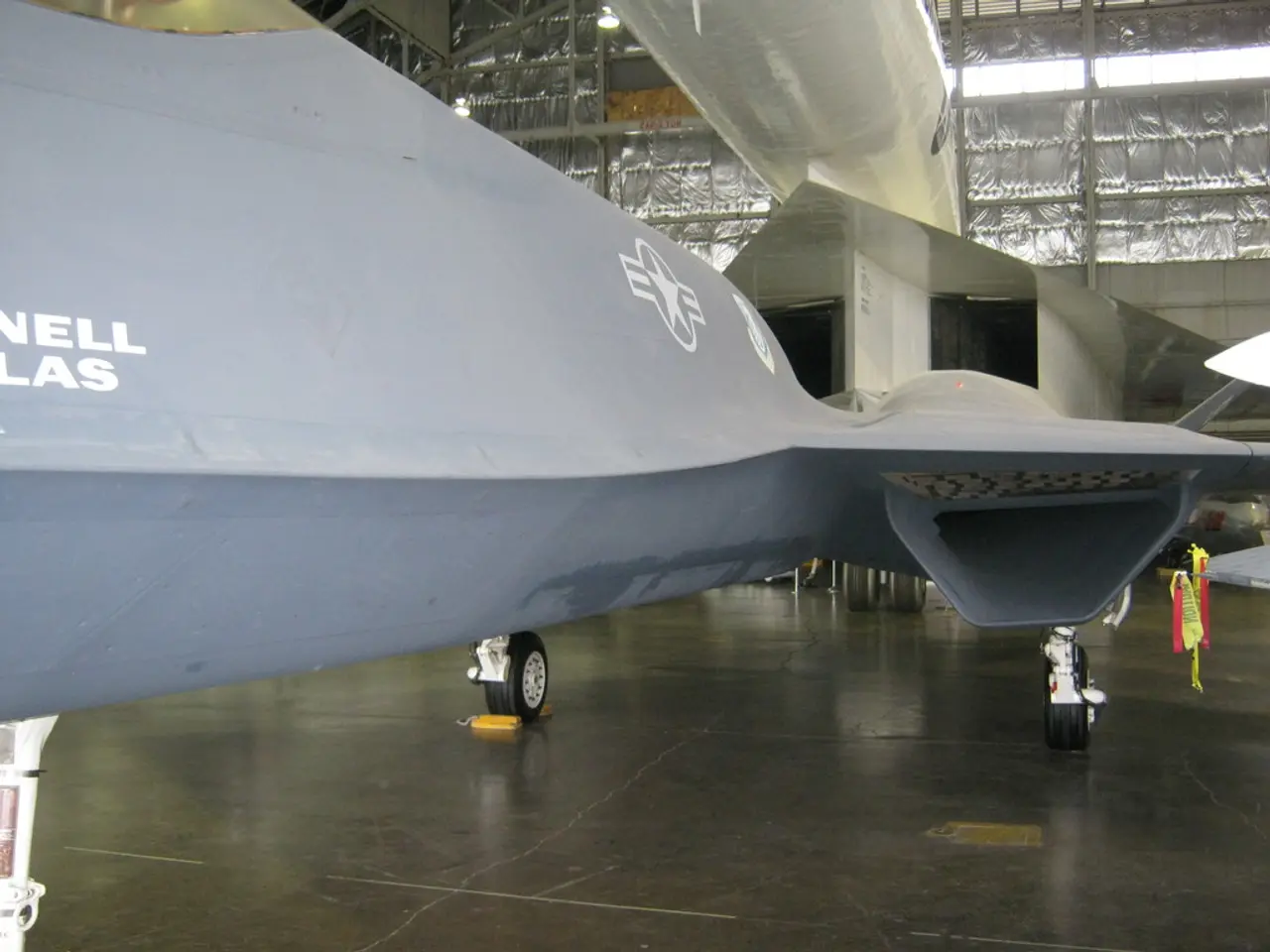Dispute over compensation leads to industrial action by Boeing's defense department employees
Thousands of Boeing defense workers went on strike for the first time in nearly 30 years in 2022, marking a significant event in the company's history. This strike, although not as large as a previous one involving 33,000 Washington state factory workers, had a notable impact on Boeing's space and defense division, wage growth negotiations, and coincided with ongoing safety challenges.
Impact on Boeing's Space and Defense Division
In 2025, over 3,200 union workers in Boeing’s St. Louis defense facilities—critical for manufacturing fighter jets and military aircraft—went on strike. These facilities are a backbone of Boeing’s defense division, generating about $6.6 billion in annual revenue and playing a fundamental role in programs like the F-47 NGAD fighter jet project for the U.S. Air Force. The strike risked delaying production and delivery of key defense contracts, potentially impacting Boeing's strategic commitments to the Pentagon.
However, Boeing’s defense division is more financially resilient to such disruptions due to cost-plus government contracts and long-term commitments compared to their commercial aviation segment. Boeing's strong liquidity position in 2024–2025 helped buffer short-term operational risks from the strike.
Wage Growth
The union (International Association of Machinists and Aerospace Workers Local 837) largely rejected Boeing’s contract offers, despite proposals with up to 40% average wage growth over four years, including a 20% general wage increase and a $5,000 ratification bonus. The rejections reflected worker demands for terms they felt better reflected their skills and contributions.
The earlier 2024 strike in Boeing’s commercial sector resulted in a 38% wage increase after seven weeks. District 837 and Boeing defense workers sought comparable pay improvements, contributing to the strike.
Ongoing Safety Issues
Though most details about Boeing’s safety issues relate to commercial aviation, notably the 737 Max incidents and quality control concerns, these played a background role in company challenges during this period. In 2024, Boeing underwent federal investigations after a 737 Max door plug incident and subsequent FAA-imposed production limits. These had notable financial and reputational impacts but were less directly related to the defense division strikes.
Boeing leadership in mid-2025 focused on managing these commercial safety constraints alongside the defense strikes, with CEO Kelly Ortberg expressing confidence in navigating labor disputes without major disruption to defense or commercial operations.
Summary
The Boeing strikes around 2025 (following the 2022 labor tensions) primarily impacted the defense division’s fighter jet production in St. Louis, involving significant labor disputes over wage growth, despite Boeing's offers of substantial raises. While Boeing's defense contracts and liquidity helped cushion the operational impact, these strikes still carried risks of production delays with strategic implications for military programs.
Concurrently, Boeing addressed ongoing safety-related regulatory challenges stemming from 737 Max issues in its commercial aviation sector, a separate but overlapping company concern during this period. The union posted that the strike is about respect and dignity, not empty promises, while the current strike is not causing significant concern for Boeing's CEO, Kelly Ortberg.
The 2025 strike by union workers within Boeing's St. Louis defense facilities had a significant impact on the production of fighter jets and military aircraft, potentially delaying key defense contracts and risking Boeing's strategic commitments to the Pentagon.
Despite Boeing offering up to 40% average wage growth over four years, the International Association of Machinists and Aerospace Workers Local 837 largely rejected these proposals, demanding terms that they felt better reflected their skills and contributions.
In addition to the defense division strikes, Boeing continued to face ongoing safety issues, particularly in its commercial aviation sector, such as the 737 Max incidents and quality control concerns, albeit these were less directly related to the strikes.








